Education columnists might not get the same level of acclaim and name recognition as investigative journalists, but the articles they pen can be just as revealing. They take on key issues in education, one of the foundational institutions in our society, exposing the good, the bad, and sometimes the just plain ugly from elementary schools all the way through higher ed. Here, we highlight some of the most well-respected, award-winning, and prolific education columnists from the past few decades. If you haven't heard of them before, there's no better time to find out more about what they've written.
Jay Mathews:
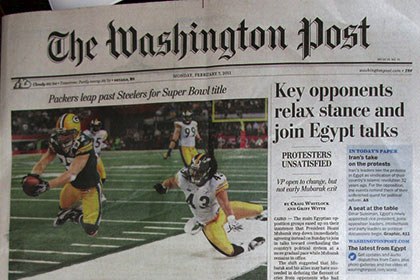
Perhaps one of the best-known education columnists working today is Jay Mathews. Mathews writes for The Washington Post penning both a weekly column and writing an online blog on the paper's website called Class Struggle. He has worked at The Washington Post since 1971, covering a wider range of topics before focusing in on education. In 1999, Mathews won the Benjamin Fine Award for Outstanding Education Reporting for both his features and his column writing, and he has also been awarded the Upton Sinclair Award, the Eugene Meyer Award, and a host of other honors for his writings on education. Mathews is also the author of a number of well-known books focused on education, including Escalante: The Best Teacher in America about famous teacher Jaime Escalante; Class Struggle: What's Wrong (and Right) with America's Best Public High Schools; and Work Hard. Be Nice.
Fred M. Hechinger:
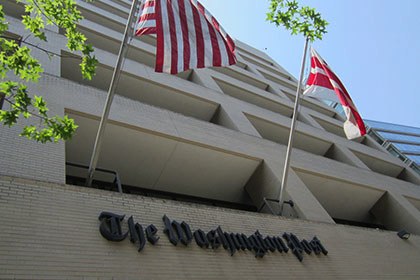
Hechinger immigrated to the U.S. in 1936 when he was just 16 years old. He completed his college education in New York before joining the Army during WWII, where he became a foreign correspondent. This early experience helped to spawn a career in journalism for Hechinger and after the war he took on positions as an education writer for The New Times of London, The New York Herald Tribune, The Washington Post, and Harper's. He would eventually become the education editor at The Herald Tribune and later The New York Times. During his tenure at these publications, Hechinger would put out some of the best education-related writing of the time, winning numerous George Polk awards (including a career award) and the James L. Fisher Award for Distinguished Service to Education, among others. Today, his papers are held at the Hoover Institution and his name is on the most prestigious award given out by the Education Writers Association, a testament to the great work he published during his lifetime.
Benjamin Fine:
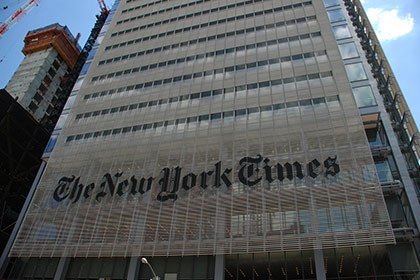
A graduate of the Columbia University Graduate School of Journalism (holding two master's degrees and one Ph.D.), journalist Benjamin Fine started his career with The New York Times in 1938 as an education reporter. Just three years later he was promoted to education editor, a position he would hold for the next 17 years. It was there that Fine would do some of his best work, winning the Pulitzer Prize in 1944 for a series of articles on the teaching of history in American high schools and colleges. Fine is also notable for his actions at the Little Rock Central High school, where he was one of the few in attendance to help a scared Elizabeth Eckford face the angry crowds protesting the desegregation of the school. Before retiring from education writing in 1958 to work as a dean and later a headmaster, Fine would earn a number of George Polk Awards for his work and would leave his mark as one of the best education journalists of all time.
Stephen Burd:
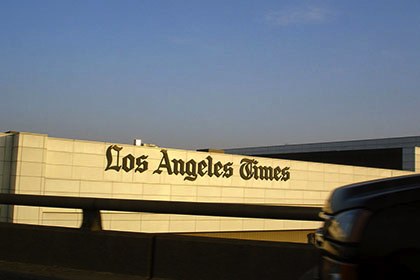
Stephen Burd is among the most honored education columnists working today. For his work with The Chronicle of Higher Education, The Los Angeles Times, and Washington Monthly, Burd has received multiple national reporting awards from the Education Writers Association, most notably for his work on federal higher education policy and the student loan industry. In addition to being a well-known education reporter, Burd also works as an education policy analyst, previously for Education Sector, a non-partisan higher ed think tank, and currently for the New America Foundation. He has also served as the editor for the New America Foundation's Higher Ed Watch blog, which under his guidance won awards for coverage on a range of student loan and for-profit education topics.
Diane Ravitch:
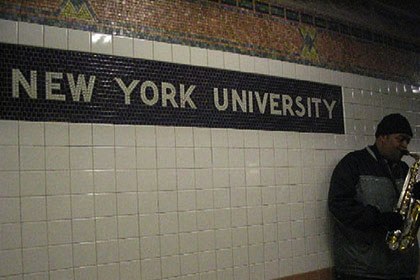
Research Professor of Education at NYU Diane Ravitch is a historian of education, but she also focuses on a number of current issues. Her work has appeared in a number of newspapers and magazines, though she currently blogs for Politico, The Huffington Post, and Education Week. She has won countless awards for her teaching and scholarship in education, and at one point served at the Assistant Secretary of Education. Ravitch's illustrious career began with journalism, and despite the many other roles she has played over the years, her writing has always been a major focus. She has written 14 books on education, including The Death and Life of the Great American School System, which became a best seller. While not strictly a journalist, this highly-decorated education professional has influenced policy and public thinking on the topic for decades through both her books and the columns she contributes to other publications.
Douglas Lederman:
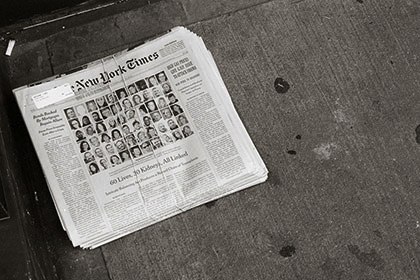
Douglas Lederman began his career at The New York Times as a lowly news clerk, but would soon build an illustrious career in education writing. Currently, Lederman works as the editor (and one of the founders) of Inside Higher Ed, a popular education-focused blog. During his career, Lederman has written for numerous prestigious publications, including USA Today, the Nieman Foundation Journal, The Christian Science Monitor, and the Princeton Alumni Weekly, as well as putting in a lengthy stint as managing editor at the Chronicle of Higher Education. Over the past decade, he has won three National Awards for Education Reporting from the Education Writers Association, including one in 2009 for a series of Inside Higher Ed articles he co-wrote on college rankings.
Andrew J. Rotherham:
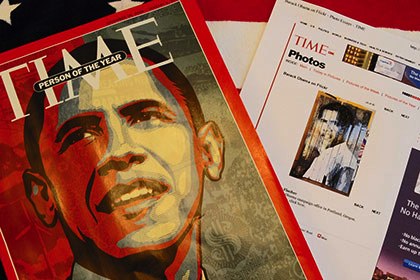
Andrew J. Rotherham isn't strictly a journalist, but that doesn't mean his writing hasn't been influential, as his work in education policy has given him a strong background to draw on for his writing. During the Clinton Administration, Rotherham served at the White House as the Special Assistant to the President for Domestic Policy. He presently spends a great deal of his time working as the co-founder and partner at Bellwether Education, a nonprofit organization that aims to improve educational outcomes for low-income students. Rotherham still has time to write, however, and he is a contributor to Time Magazine on education topics and the author of the award-winning blog Eduwonk. To date, he has been the author or co-author of more than 200 articles, book chapters, papers, and op-eds about education policy and politics, as well as four books on educational policy.
Samuel Freedman:
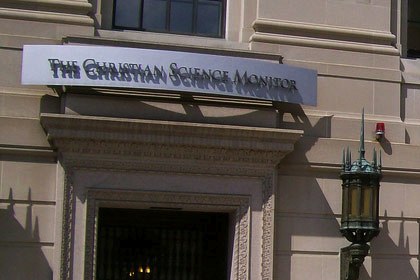
Samuel Freedman is an award-winning author, columnist, and professor. He has written six acclaimed books including Small Victories: The Real World of a Teacher, Her Students and Their High School, which was a finalist for the 1990 National Book Award. From 2004 through 2008, he wrote the "On Education" column for The New York Times, which won first prize in the Education Writers Association's annual competition. Freedman's writing doesn't always focus on education, and he currently writes about religion, Judaism specifically, for the Times and other publications. What makes Freedman stand out, however, isn't just his writing but also his commitment to training the next generation of journalists. In 1997, he was named the nation's outstanding journalism educator by the Society of Professional Journalists for his class in book-writing, which has developed nearly 50 authors, editors, and agents, and been featured in Publishers Weekly and the Christian Science Monitor.
Stephanie Banchero:
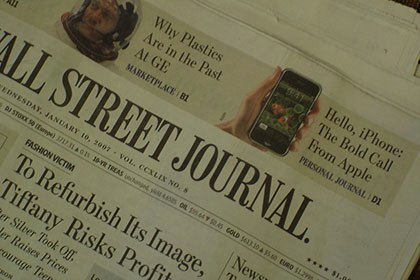
Another education journalist of note who is still working today is Stephanie Banchero. Currently, Banchero serves as the education reporter for The Wall Street Journal, covering K-12 education issues. Before joining the WSJ, she worked as an education reporter with a number of other papers, including the Chicago Tribune, the Charlotte Observer, the Philadelphia Inquirer, and the Salt Lake Tribune. She has won numerous awards for her work including a first place EWA award for her magazine profile of a father struggling with the care and education of his children and the same award in 2004 for a three-part series on a student transferring schools as part of the No Child Left Behind law. In addition to writing for the WSJ, she is currently the president of the Education Writers Association.
Dale Mezzacappa:
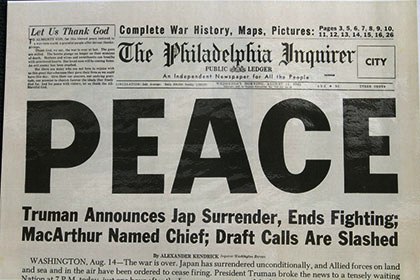
Dale Mezzacappa has reported on education since 1986, largely working with The Philadelphia Inquirer, but her work has also appeared in the Washington Monthly and Education Next. She has won many local and national journalism awards during her career from organizations like the EWA, the Society of Professional Journalists, the New Jersey Press Association, and the Columbia University School of Journalism. One of her most famous pieces is a series spanning 13 years that followed 112 inner-city sixth graders who were promised a free college education by a wealthy philanthropist. Mezzacappa currently works as the contributing editor at The Philadelphia Public School Notebook as well as teaching a journalism course at Swarthmore College and sitting on the board of the Education Writers Association.
Nice work, your blog is concept-oriented, kindly share more blogs like this
ReplyDeleteReact js Online Training
Angularjs Training
NodeJS Online Training
Microstrategy Online Training
Power BI Online Training
AngularJS Online Training
It is important to proof read it so that the errors and flaws can be caught and the quality of your writing, help in project have experienced well qualified researchers who have a great knowledge of thesis writing service and editing many projects.
ReplyDeleteFor more info visit at dissertation writing help
thesis proofreading services
Phone Number:- 8882062859
Contact Email Id:- info@helpinproject.com